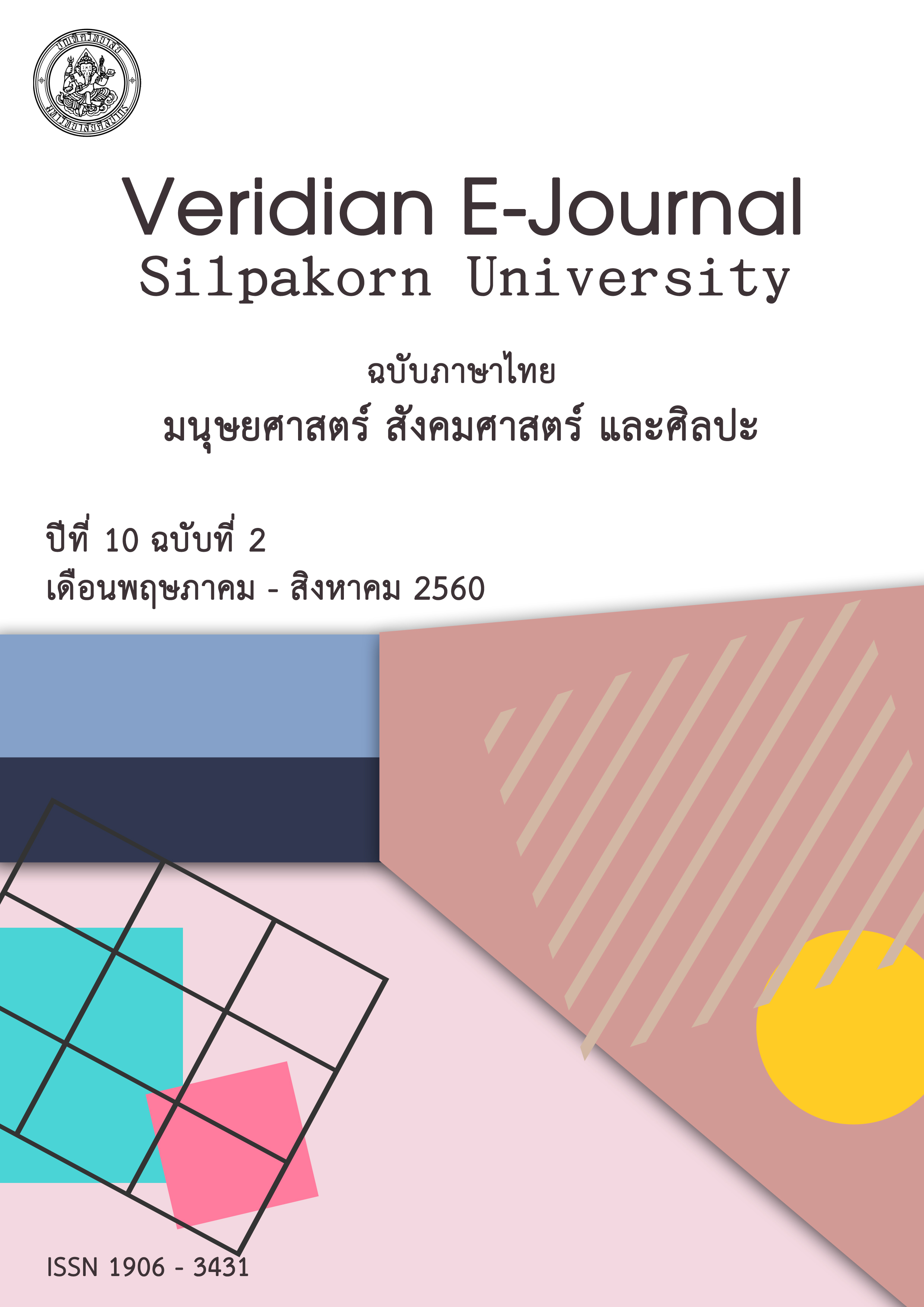การศึกษากิจกรรมการเรียนรู้แบบใช้สมองเป็นฐานเพื่อส่งเสริมความรู้ด้านคำศัพท์และความสามารถในการอ่านภาษาอังกฤษของนักเรียนชั้นประถมศึกษาปีที่ 3
Main Article Content
Abstract
การวิจัยครั้งนี้มีวัตถุประสงค์เพื่อ 1) ศึกษาความรู้ด้านคำศัพท์ภาษาอังกฤษโดยใช้รูปแบบกิจกรรมการเรียนรู้แบบใช้สมองเป็นฐาน และ 2) ศึกษาความสามารถในการอ่านภาษาอังกฤษโดยใช้รูปแบบกิจกรรมการเรียนรู้แบบใช้สมองเป็นฐาน กลุ่มเป้าหมายเป็นนักเรียนชั้นประถมศึกษาปีที่ 3 จำนวน 34 คนที่เรียนวิชาภาษาอังกฤษหลักภาคเรียนที่ 2 ปีการศึกษา 2558 โรงเรียนสาธิตมหาวิทยาลัยศิลปากร (ปฐมวัยและประถมศึกษา) เครื่องมือที่ใช้ในการวิจัยเป็นแผนการสอนที่มีกิจกรรมการเรียนรู้แบบใช้สมองเป็นฐาน จำนวน 11 แผน แผนละ 3 คาบ คาบละ 50 นาที รวมทั้งหมด 33 คาบ ในการเก็บรวบรวมข้อมูล หลังจากที่ผู้วิจัยดำเนินการสอนในแต่ละบท นักเรียนทำแบบทดสอบความรู้ด้านคำศัพท์และความสามารถในการอ่านภาษาอังกฤษ การวิเคราะห์ข้อมูลใช้สถิติการหาค่าเฉลี่ย ส่วนเบี่ยงเบนมาตรฐาน และค่าร้อยละ ผลการวิจัยสรุปได้ดังนี้ 1) ความรู้ด้านคำศัพท์ภาษาอังกฤษของนักเรียนหลังการเรียนโดยใช้กิจกรรมการเรียนรู้แบบใช้สมองเป็นฐานอยู่ในระดับดีมาก 2) ความสามารถในการอ่านภาษาอังกฤษของนักเรียนหลังจากใช้กิจกรรมการเรียนรู้แบบใช้สมองเป็นฐานอยู่ในระดับดี
The objectives of this study were 1) to study the knowledge of English vocabulary of the third grade students after use of brain-based learning activities and 2) to study the English reading ability of the third grade students after use of brain-based learning activities. The samples were 34 third grade students, who enrolled in the fundamental English course in the second semester of the 2015 academic year. The research instruments were 11 lesson plans, which included brain-based learning activities and one of which took three 50-minute sessions. As for data collection, after the researcher taught all the lessons, the students took a test on their knowledge of English vocabulary and reading ability. Mean, standard deviation and percentage were used to analyze the data. The research findings were as follows: 1) the knowledge of English vocabulary of the students after the instruction of the brain-based lessons was at a very high level; and 2) the students’ reading ability after the instruction of the brain-based lessons was at a high level.

